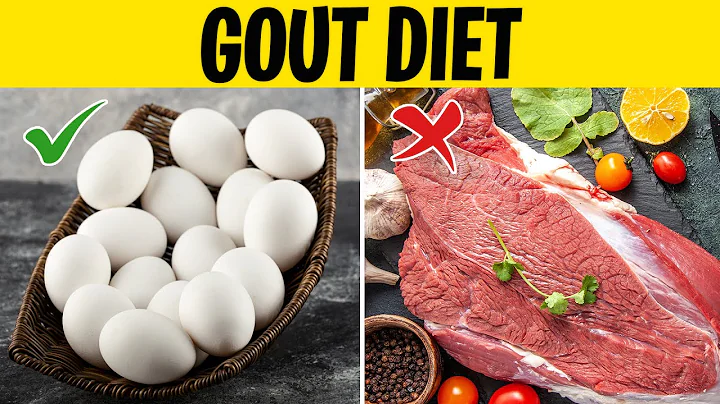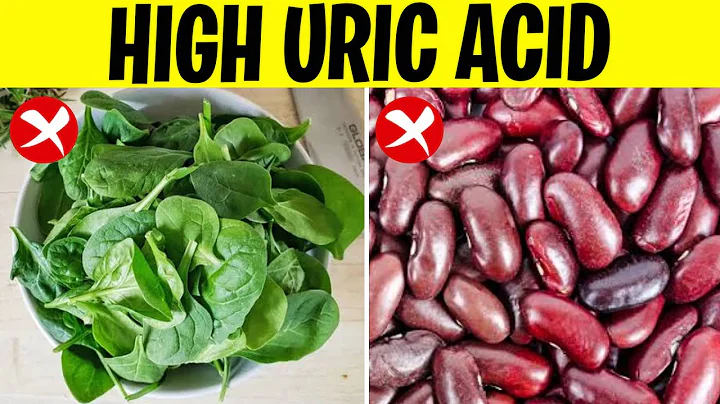
Like being cut by a knife, pricked by a needle, bitten, torn...The pain caused by gout makes many people "unable to live without love".
Regarding gout and high uric acid, many people know that they should avoid foods, such as eating less seafood and drinking less beer. A study involving more than 70,000 people from all over the world showed that eating beans may be related to elevated uric acid.

" Life Times " interviews experts to tell you how to eat soy foods, and summarizes a food purine table to prevent hyperuricemia .
Experts interviewed
Zeng Xiaofeng, director of the Department of Rheumatology and Immunology, Peking Union Medical College Hospital
China registered dietitian Liu Jing
Beans may be related to elevated uric acid
Researchers from Fudan University and Kailuan General Hospital, in China Studies conducted in the population have found that higher DESH dietary pattern scores are associated with a 30% reduction in the risk of hyperuricemia, and that soy food intake is associated with an increased risk of hyperuricemia.

The general content of the Deshu diet is: ① Intake adequate amounts of vegetables, fruits and low-fat dairy products; ② Reduce the intake of foods rich in saturated fat, cholesterol and trans fat ; ③ Intake an appropriate amount of Whole grains, fish, poultry and dried fruits; ④ Control the intake of sodium, desserts, sugary drinks and red meat.
A total of 71,893 participants were included in this study. The average age was 51.4 years old, 80.6% were male, and there was no history of gout. The results of the
study show that higher intakes of vegetables, fruits, and whole grains, and lower intakes of fats, sugary drinks, beans, and dairy products, are associated with a reduced risk of hyperuricemia.
This study shows that soy consumption is associated with increased hyperuricemia and, in fact, soy is high in purine. However, some studies have shown that eating soy products, such as northern tofu (purine content 68 mg/100g), soy milk (purine content 29 mg/100g), etc., can reduce the risk of gout. This may be because soybeans are processed , the purine content dropped significantly.
How to limit purine intake?
Purine is a colorless crystal that exists in the human body. Uric acid is produced by the catabolism of purine in the liver. 20% of purine in the human body comes from food, and 80% is produced through cell metabolism in the body.
Under normal circumstances, the production and clearance of uric acid are in a dynamic balance. Any cause of increased production or decreased excretion of uric acid, or both mechanisms at the same time, will result in increased serum uric acid levels.
- Increased uric acid production: Defects in key enzymes in the purine metabolism process, as well as high purine diet, will cause increased uric acid production.
- Reduced uric acid excretion: Long-term use of diuretics , acidosis caused by various reasons, as well as "three highs", obesity, chronic kidney disease , etc., can easily cause hyperuricemia.
Under normal eating conditions, if two fasting tests are performed on different days, if the blood uric acid in men is greater than 420 mmol/L, and in women is greater than 360 mmol/L, hyperuricemia can be diagnosed.
Once the uric acid value in the body is abnormal, it may cause joint pain, difficulty urinating, elevated blood sugar, and damage to blood vessels.
How to limit purine intake in daily diet? Shengshengjun has summarized a food purine table for you ↓
Swipe up to read, long press to save

The average person's normal dietary intake of purine is 600~1000 mg per day, and the purine intake during an acute attack of gout should be controlled within 150 mg; relief You should also follow the principle of low purine diet during this period.
In addition, you must develop the habit of drinking more water. Adults can drink 1,500 to 2,000 milliliters of water per day. They can also do aerobic exercise such as walking, Tai Chi, square dancing, etc.
How should you eat soy products?
As the saying goes, knowing how to eat beans is better than eating meat. Soybeans are the main source of high-quality protein, and soy products are an important part of a balanced diet.
If you are really worried about elevated uric acid, you can eat some soy products appropriately.Each soy product has its own nutritional advantages:
soy milk
soy milk has a rich bean flavor and retains most of the beneficial ingredients in the raw materials, such as soy isoflavones , stigmasterol, etc. Its nutrient content is mainly determined by the amount of water added. Generally speaking, the ratio of soybeans to water when making soy milk is about 1:18~1:20.

Tofu, dried tofu, shredded tofu
In the process of making tofu and other soy products, the process of "ordering tofu" is indispensable. Some will use coagulant containing calcium ions , thus creating a group of calcium supplement experts. .
The calcium content of dried tofu is as high as 447 mg/100g, shredded tofu 204 mg/100g, southern tofu113 mg/100g, and northern tofu 105 mg/100g.
Tofu, tempeh, natto
After fermentation of soy products such as tempeh and fermented bean, the content of B vitamins increases. In particular, fermentation can produce vitamin B12 that is lacking in plant foods .
The vitamin B2 content in fermented bean curd is 6 to 7 times higher than that in tofu. After fermentation, the soluble mineral content in these soy products will also increase.
It should be reminded that fermented bean curd, tempeh, etc. contain high salt content and can only be eaten in small amounts with meals.
Yanba and fried bean curd
During the production process of bean curd and fried bean curd, the soybean milk needs to be heated to evaporate the water on the surface. The soybean protein will be cross-linked to form a thin film on the surface of the soybean milk, wrapping up fats, sugars and other ingredients. High protein and fat content.
● Tips
Although soy products are the main source of plant protein, they should not be consumed in excess, otherwise they may affect digestion and cause symptoms such as bloating and diarrhea.
Acute pancreatitis, chronic kidney disease, diabetes,chronic gastric disease, urinary tract stones, hyperkalemia and other diseases, it is recommended to ask a doctor according to the condition of the patient whether he or she can eat soy products. ▲
Editor of this issue: Wang Xiaoqing
Copyright statement: This article is original to "Life Times" and any unauthorized reproduction is strictly prohibited.
Each soy product has its own nutritional advantages:soy milk
soy milk has a rich bean flavor and retains most of the beneficial ingredients in the raw materials, such as soy isoflavones , stigmasterol, etc. Its nutrient content is mainly determined by the amount of water added. Generally speaking, the ratio of soybeans to water when making soy milk is about 1:18~1:20.

Tofu, dried tofu, shredded tofu
In the process of making tofu and other soy products, the process of "ordering tofu" is indispensable. Some will use coagulant containing calcium ions , thus creating a group of calcium supplement experts. .
The calcium content of dried tofu is as high as 447 mg/100g, shredded tofu 204 mg/100g, southern tofu113 mg/100g, and northern tofu 105 mg/100g.
Tofu, tempeh, natto
After fermentation of soy products such as tempeh and fermented bean, the content of B vitamins increases. In particular, fermentation can produce vitamin B12 that is lacking in plant foods .
The vitamin B2 content in fermented bean curd is 6 to 7 times higher than that in tofu. After fermentation, the soluble mineral content in these soy products will also increase.
It should be reminded that fermented bean curd, tempeh, etc. contain high salt content and can only be eaten in small amounts with meals.
Yanba and fried bean curd
During the production process of bean curd and fried bean curd, the soybean milk needs to be heated to evaporate the water on the surface. The soybean protein will be cross-linked to form a thin film on the surface of the soybean milk, wrapping up fats, sugars and other ingredients. High protein and fat content.
● Tips
Although soy products are the main source of plant protein, they should not be consumed in excess, otherwise they may affect digestion and cause symptoms such as bloating and diarrhea.
Acute pancreatitis, chronic kidney disease, diabetes,chronic gastric disease, urinary tract stones, hyperkalemia and other diseases, it is recommended to ask a doctor according to the condition of the patient whether he or she can eat soy products. ▲
Editor of this issue: Wang Xiaoqing
Copyright statement: This article is original to "Life Times" and any unauthorized reproduction is strictly prohibited.





















